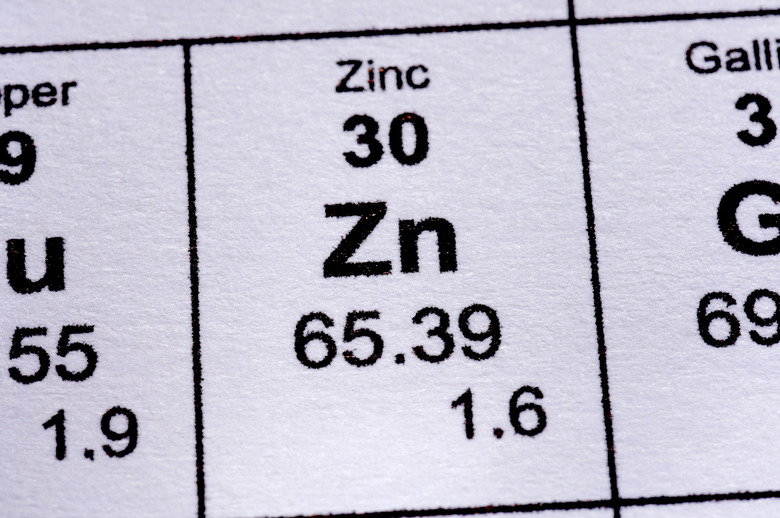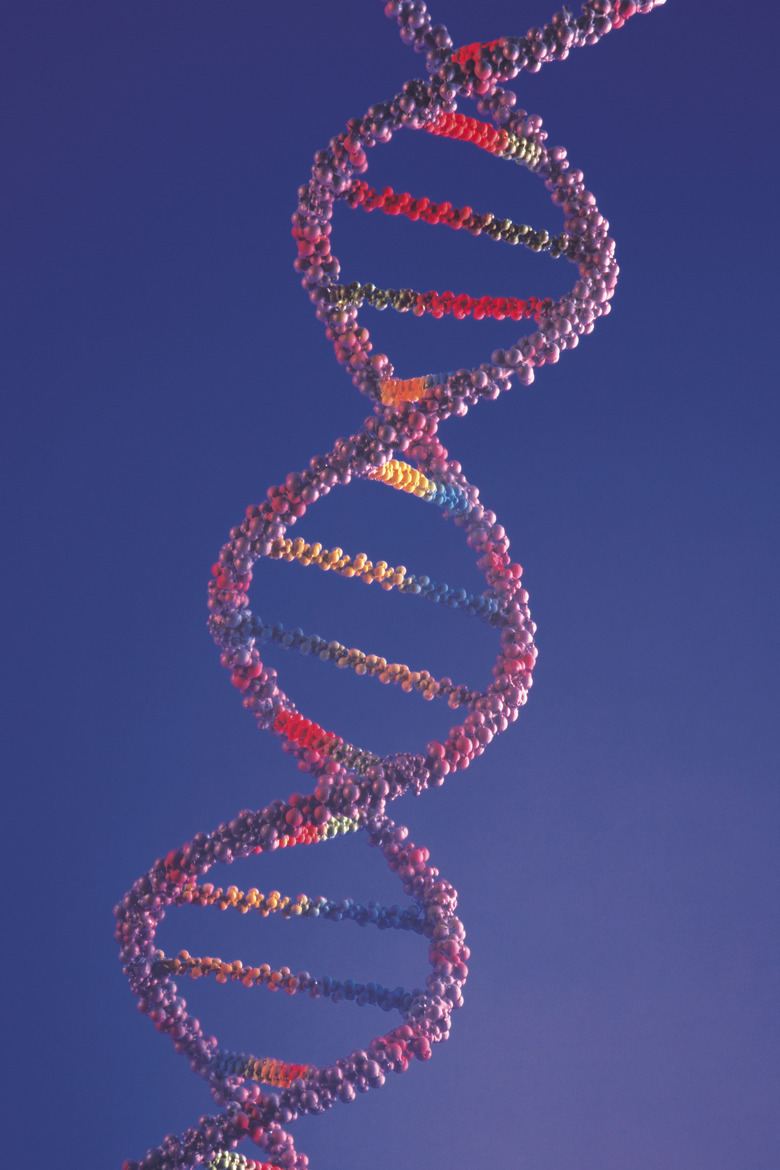Differences Between Zinc Monomethionine And Zinc Picolinate
Both zinc monomethionine and zinc picolinate are bio-available forms of the mineral zinc, meaning they can be absorbed by the intestines and used by the body's cells. Both forms are chelated, meaning the zinc atom is bound to another molecule. There is some evidence that chelated zinc may more easily pass through the intestinal wall for better absorption. The main difference between zinc monomethionine and zinc picolinate is the type of chelation molecule each contains.
Zinc's Role in the Body
Zinc's Role in the Body
Elemental zinc is an essential mineral, meaning it is required in your diet, and it makes its way from the large intestines into every cell in the body. It is an essential catalyst in many of the body's innumerable biochemical reactions. It is a structural component of cell membranes and proteins. It plays an important role in immune function. It also acts as an antioxidant and protects cells from free radical damage.
Medical Conditions Treated with Zinc
Medical Conditions Treated with Zinc
According to the National Institutes of Health, zinc may help improve the following health conditions:
Common colds (lozenges) Acne (topical preparations and supplements) Osteoporosis (supplements) Stomach ulcers (supplements) Herpes simplex (topical preparations) Tartar buildup on the teeth (topical, in toothpaste) Gingivitis (topical, in mouthwash) Age-related macular degeneration (supplements)
According to the Linus Pauling Institute, zinc supplements may help improve the following health conditions that are complicated by a zinc deficiency:
Failure to thrive in children Diabetes HIV/AIDS
Zinc Picolinate
Zinc Picolinate
The zinc picolinate molecule is comprised of a zinc atom attached to a picolinic acid molecule. Picolinic acid is synthesized by the body in the liver and is then stored in the pancreas. It is released into the intestines during digestion to bind to minerals, like zinc, and promote their absorption. A 1987 study by S.A. Barrie et al. at John Bastyr College of Naturopathic Medicine found that zinc picolinate was better absorbed in humans than zinc citrate and zinc gluconate.
Zinc Monomethionine
Zinc Monomethionine
Zinc monomethionine is a combination of the mineral zinc and the amino acid methionine. Supplement manufacturers claim that zinc monomethionine is more easily absorbed because methionine is the body's most readily absorbed amino acid. InterHealth Nutraceuticals has published three preclinical studies to support this claim, evidence that is less authoritative and conclusive than the findings of a controlled study. A common brand of zinc monomethionine is OptiZinc, which combines zinc and methionine in a 1:1 ratio.
References
- University of Maryland Medical Center: Zinc
- MedlinePlus; Zinc; February 2011
- "Agents and Actions"; Comparative Absorption of Zinc Picolinate, Zinc Citrate and Zinc Gluconate in Humans; S.A. Barrie, et al.; June 1987
- Linus Pauling Institute; Micronutrient Information Center; Jane Higdon; March 2011
- The Journal of the Argentine Chemical Society; Vibrational Spectra and Electrochemical Behavior of Bispicolinate; B.S. Parajon-Costa, et al.; 2004
Cite This Article
MLA
Hunt, Kimm. "Differences Between Zinc Monomethionine And Zinc Picolinate" sciencing.com, https://www.sciencing.com/differences-between-zinc-monomethionine-and-zinc-picolinate-12572911/. 25 October 2017.
APA
Hunt, Kimm. (2017, October 25). Differences Between Zinc Monomethionine And Zinc Picolinate. sciencing.com. Retrieved from https://www.sciencing.com/differences-between-zinc-monomethionine-and-zinc-picolinate-12572911/
Chicago
Hunt, Kimm. Differences Between Zinc Monomethionine And Zinc Picolinate last modified March 24, 2022. https://www.sciencing.com/differences-between-zinc-monomethionine-and-zinc-picolinate-12572911/

